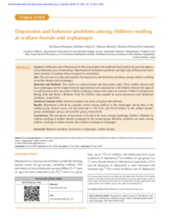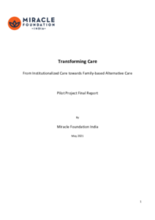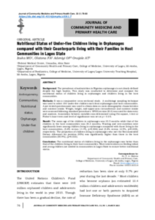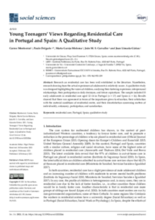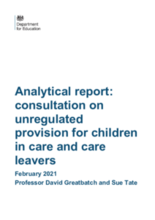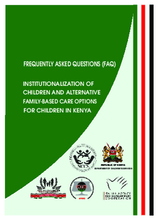Displaying 101 - 110 of 1459
This article exploresthe extent to which general strain theory (GST) and self-control theory can explain the mental health outcomes of youth in-care.
The aim of this article was to study and compare the depression and behavioral problems among children residing at welfare hostels and orphanages.
This grounded theory study aimed to theorize pathways through which orphaned adolescents within institutional care navigate to achieve positive adaptation.
This is the summary report for a pilot project spearheaded by Miracle Foundation India with its two partner organizations which were two Children's Care Institutions (CCIs) in the Indore District in central India. The goal of the pilot was to ‘create a replicable modal for other CCIs to effectively implement family based and alternative care through systemic change by engaging multiple stakeholders’.
This study was conducted to determine and compare the nutritional status of children living in orphanages and children living in the host communities in Nigeria.
A qualitative study was designed highlighting the voices of children, analysing their fostering experience, interpersonal relationships, their participation in daily decisions, and future aspirations.
This research explored the experiences of the postmarital life of women with a history of residence in foster care centers. It was conducted using a qualitative content analysis.
The Department launched a consultation on the use of independent and semi-independent children's care settings that are not required to register with Ofsted (unregulated provision) as a matter of urgency, ahead of the Government’s anticipated wider care review. This report presents the key findings from an independent analysis of responses to the consultation.
This article offers a critical cultural reading of narratives on family reunification in Haiti in social media and advocacy discourse, revealing how this approach privileges Northern assumptions about proper parenting and family life.
This booklet emphasizes the importance of family based care for the care of orphaned and vulnerable children (OVC) in Kenya, provides answers to regularly asked questions, and lists current government efforts to support OVC, including the policy and legal frameworks and existing forms of family and community-based care.

